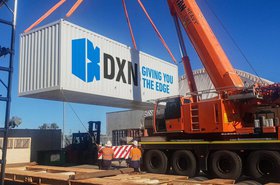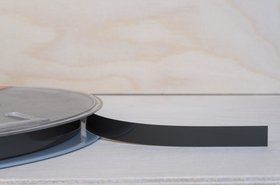UK-based Space Forge has announced a Memorandum of Understanding (MoU) with United Semiconductors in the US, outlining plans to design processors and equipment for advanced semiconductor manufacturing in space.
Space Forge launched its first manufacturing satellite, ForgeStar-1, on June 23 aboard SpaceX’s Transporter-14, which was the first British-built satellite of its kind in history. The machine’s mission is to determine the feasibility of microgravity manufacturing, mostly in crystal formation for use in advanced semiconductors, also in industries like metallurgy and pharmaceuticals.
ForgeStar-1 is expected to de-orbit soon.
United Semiconductors has completed its first stage in testing aboard the ISS after its experiments reached the station last November, with a second set of tests arriving on Northrop Grumman’s Cygnus XL cargo transport on September 18.
“This partnership marks an exciting evolution in our mission to establish a robust US semiconductor manufacturing footprint that onshores reliable and resilient supply chains here at home,” president of Space Forge USA, Michelle Flemming, told SpaceNews. “By combining our terrestrial and microgravity manufacturing capabilities with United Semiconductors’ deep expertise in crystal growth and wafer processing, we’re creating a powerful collaboration that can demonstrate the commercial viability of space-based semiconductor production.”
Flemming has come to Space Forge’s US branch, which opened in Florida near the Kennedy Space Center in late October 2024, with a goal to expand its exposure to American investors.
Both companies seek to make use of the microgravity environment of Earth’s orbit to produce semiconductor crystals of higher uniformity of size and structure, sometimes referred to as crystal purity, which occurs due to the favourable convective currents found in space, influencing the buoyancy and sedimentation of crystal formation. This phenomenon has been known to produce superior semiconductors.
“The impact space manufacturing has on compound semiconductors can sometimes garner a 3-4 or even a five-times order of magnitude improvement in the purity of the crystal, specifically the dislocation density—how well that crystal fits together,” Joshua Western, Space Forge CEO and co-founder, said at the ISAM 2025 conference in Belfast this June. “The chips these semiconductors compose represent up to a 60 percent reduction in size, weight, and power constraints even at the end-system application.”
Western has said that the company’s models suggest it can derive ten generations of a microgravity crystal from each seed before they deteriorate to conventional crystal quality, which suggests each Space Forge launch would garner 100 million chips per flight.
On paper, the business case is beyond sound, though the very new science of microgravity manufacturing introduces many ifs and buts to theoretical assumptions.
This hasn’t deterred investors, who made Space Forge the recipient of a record-breaking Series-A in May this year of £22.6 million, the biggest of any UK spacetech company, led by the NATO Innovation Fund, and including the World Fund and the British Business Bank. Grateful as he was, Western described the number as a “damning indictment”.
“It shouldn’t be the case that 50-odd people with a disused burger van for a factory in Cardiff [are the UK’s biggest Series-A].”
Indeed, in July this year, microgravity pharmaceuticals manufacturer Varda announced a Series-C of $187m led by Natural Capital and Shrug Capital with the participation of Peter Thiel, bringing its total raised to $329m, no doubt speeding Space Forge’s ambitions to expand its exposure to the US tech investor base.
Read the orginal article: https://www.datacenterdynamics.com/en/news/space-forge-signs-mou-with-united-semiconductors-on-microgravity-chips-manufacturing/









